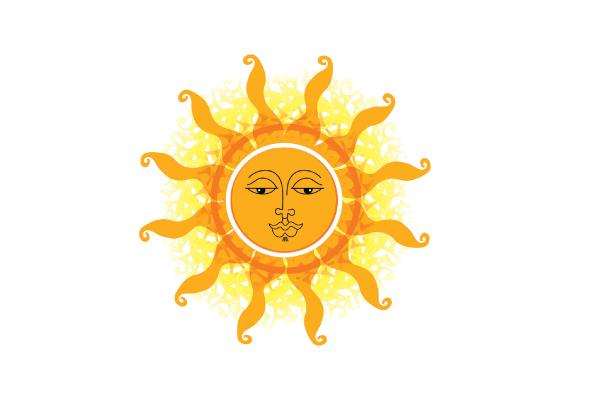
Sinhala and Hindu New Year (Aluth Avurudhu in Sinhala and Puththandu in Tamil ) is a national festival which has been celebrated in Sri Lanka for centuries. The most pronounced areas of the New Year festivities are food, games and the rituals of goodwill. The New Year games can be categorised as indoor and outdoor games.
Some of the indoor games are Pancha Dameema, Olinda Keliya and Cadju Dameema. The outdoor games are Kotta pora, Onchili pedeema, Raban geseema, Kana mutti bindeema, Placing the eye on an elephant, Bun-eating completion, Kamba adeema (Tug-o-War) and Lissana gaha nageema (climbing the greasy pole) are some of them.
The significance of the games is that everyone regardless of the age, get themselves involved in the competitions. All the indoor games are played on the floor.When the outdoor games are played the entire neighbourhood get together which enhances the unity and eliminate the misunderstandings of the past.
Playing the Rabana
Rabana is used on other occasions too. For example, when a newly married couple comes home, everybody is happy and they play the Rabana. It is meant for happy occasions. This is mainly played by elderly females but small children too join the elders.

Placing the eye on the elephant- (Aliyata asa thabeema)
This is an enjoyable experience where participants are blindfolded and have to spot the elephant’s eye.

Eating buns (Banis kema)
Yet another fun competition to watch and take part in is the bun eating contest. Buns are hung by string and participants have to kneel down with their hands tied behind their backs while trying to eat them as quickly as they can.

Pancha Keliya (Pancha Dameema, Kavadi Dameema and Bello Dameema)
This game is played by using shells. This is a traditional game that has been there for a long time. Pancha is played with five small seashells, a coconut shell, and a chart. Players are divided into two groups.

Going on the swing - (Onchilla)
Women and children ride the onchilla – the swings – strung on trees. Sometimes there are two people seated on the swing while another person keeps swaying the swing back and fro while singing special verses known as onchili waram, also known as varang kavi.

Pillow-fight - (Kotta Pora)
Pillow fights!! Yes that’s right, for Avurudu we take the concept of pillow fight to a whole new level. Players have to balance themselves on a horizontal bar with one hand tied behind their backs as they use the other hand to try and knock their opponent off the bar with a pillow. Usually the bar is placed above some mattresses or in some cases even over water.

Tug-o-War-(Kamba Adeema)
This is an old time favourite and is also a popular Avurudu game enjoyed by adults and children alike!

Breaking the pots - (Kanamutti bindeema)
Here a row of pots are hung while the participants are blindfolded and select the pot which contains a specific item. The winner is the person who hits the correct pot.

Climbing the greasy pole - (Lissana gaha nageema)
A very long timber pole made from a puwak tree, about 10 metres high, is fixed into the ground. At the top of the pole money is placed or sometimes just a flag.
The pole has been rubbed with thick slimy grease along its whole length. The first person to climb to the top claims the money. However, repeated attempts are made with some of the grease being removed on each attempt until finally, when all the grease has been removed, the last person can climb to the top and claim the money.
Olinda Keliya - (Mancala game)
Olinda Keliya uses a wooden board (olinda kolombuwa/ poruwa) which has several holes. Normally played by 2 players where 9 holes are placed 4 beads each. Olinda seed’s sting behind bright red and black. Players shift the beads from a hole to the other and collect seeds found in the hole quickly after an empty one. The player who collects the most number of seeds is the winner.
This is the verse sung during this game:
“Olinda thibenne koi koi dese,
Olinda thibenne bangali dese…….
Genath hadanne koi koi dese,
Genath hadanne Sinhala dese…”

- Internet
